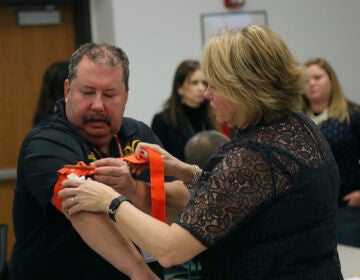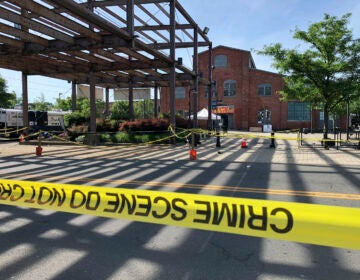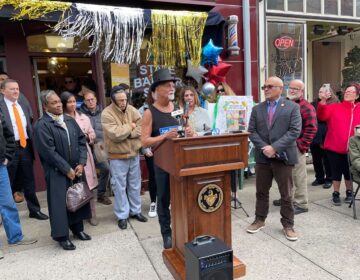After three mass shootings in a year, Trenton searching for solutions to gun violence
The recent bloodshed, including five homicides in May, has only deepened the resignation some residents feel toward gun violence in their city.
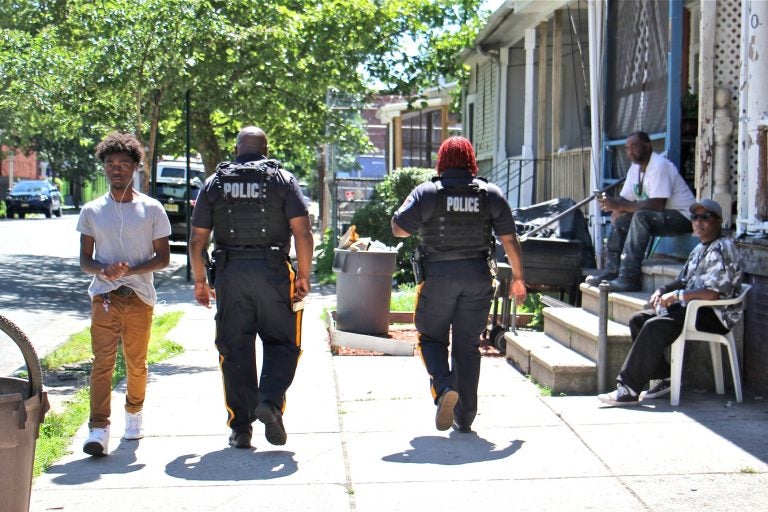
Trenton police officers patrol on foot on Walnut Street, where one person was killed and five injured in a mass shooting on May 28. (Emma Lee/WHYY)
Shortly after a deadly shootout abruptly ended Trenton’s cherished all-night arts festival last June, the newly-installed mayor promised to wage a “battle for Trenton.”
That included a new campaign to tamp down on gun violence by putting more police officers in neighborhoods. The capital city should feel safe and secure “no matter which neighborhood we call our own,” Mayor Reed Gusciora said.
But just as new leadership took the helm of the Trenton Police Department this spring, sending officers out on foot patrols for the first time in a decade, a pair of mass shootings over Memorial Day weekend claimed the life of an 18-year-old resident and injured 15 others.
The recent bloodshed, including five homicides in May alone, has put a spotlight on Trenton’s gun violence problem, even as data show some improvement in recent years.
‘It’s never over’
As Trenton prepares for the return of Art All Night this weekend, many residents remain resigned to the presence of gun violence in their city.
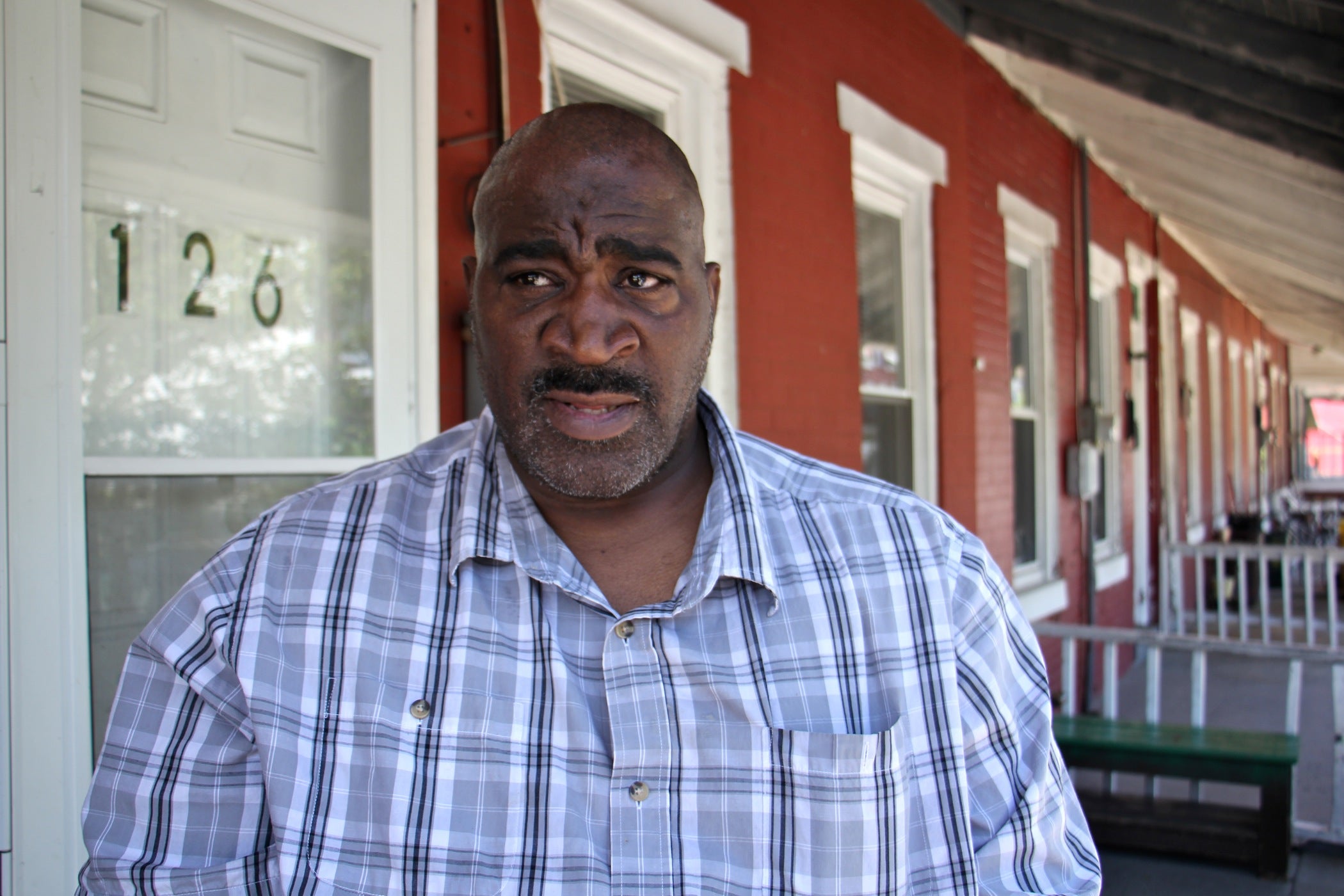
“Until the young people have another avenue out, positive things to do, they’re going to continue to do what they’re doing,” said Kenny Stewart, 57, standing on his porch around the corner from where 18-year-old Unique Anderson was gunned down last month. “It’s going to take divine intervention. The mayor can’t do it, the governor, whatever — they can’t change it.”
Trenton officials, activists and residents say the root causes of the violence are complex and varied, ranging from bad schools and a lack of jobs to scant recreational activities, easy access to guns, a strained city budget, and the street culture on some blocks.
“You used to have a fist fight and it was over at the end of the day,” said Stewart, whose nephew was injured in a separate shooting last month when gunmen opened fire outside a city bar. “Now you have a fist fight, this person goes home and get his gun, that person goes home and get his gun, and it just keeps on exchanging, so it’s never over.”
Several other neighborhood residents approached by reporters were reluctant to talk. At one point, a few young men sitting outside a liquor store starting following reporters after hearing questions about a recent shooting.
Murders and shootings in Trenton have actually decreased in recent years. In 2016, there were 21 murders and 307 assaults involving guns. Those fell to 11 and 154 in 2018 through November, according to the most recent state data.
But Jerell Blakeley, a city councilman who recently lamented that Trenton is “in the midst of a war” in which “each shooting begets more shootings,” said statistics don’t mean much as long as the perception of Trenton as a dangerous city persists.
“As long as we have three mass shootings in the last year, it’s kind of immaterial if the numbers are trending down or trending up,” he said. “We have an issue and I think we can’t quibble about that.”
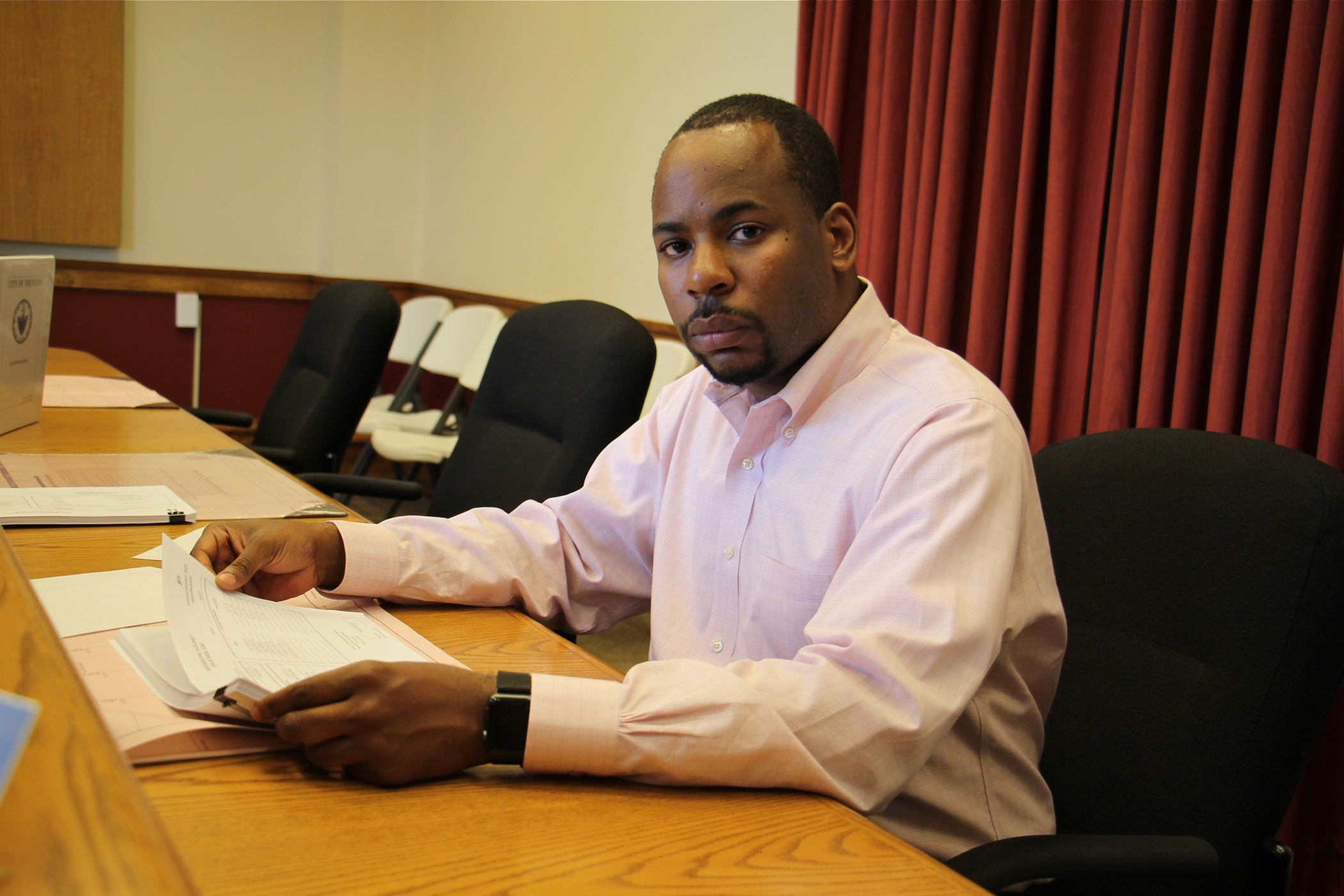
What’s being done
Mayor Gusciora said in a recent interview that solutions must address the socioeconomic problems affecting the city of 85,000 residents.
“There’s a lack of hope out there for many young people that even if they graduate from high school there’s still not a job out there at the end of the day,” Gusciora said.
But thus far, the response to the gun violence by local, state, and federal officials has focused largely on law enforcement.
Shortly after taking the helm of the Trenton Police Department last month, Director Sheilah Coley put in place new road and foot patrols, helping fulfill Gusciora’s campaign promise to adopt “community policing” tactics that put officers in more frequent contact with residents.
That move comes despite the department operating with about 100 fewer officers than it did the last time foot patrols were used. The city laid off 105 officers in 2011, about one third of the force, to help balance its budget following cuts in state aid.
Several residents interviewed this week said they felt safer with police walking the streets. But one complained about an uptick in ticketing by officers for parking and other minor violations and said police aren’t around at night when gun violence is most likely.
A police spokesman could not be reached for comment for this story.
In the wake of the shootings on Memorial Day weekend, state Attorney General Gurbir Grewal and U.S. Attorney Craig Carpenito also announced a new “violent crime initiative” in Trenton, modeled after similar programs in Newark and Jersey City.
They said federal, state, and local law enforcement agencies will share intelligence to target the city’s most violent offenders and shooting “hot spots.” In Newark, crime was down 15% from 2017 to 2018 thanks to such work, they said, while shooting incidents in Jersey City declined 69% between “comparable periods” in 2018 and 2019.
Reason for optimism
There are bright spots on the horizon. Gusciora noted that a new $155 million public high school with STEM, vocational, and other academies is slated to open in the fall.
Blakeley said a new community center is due to open in the North Ward next month.
And the Art All Night festival — the site of the shootout last year that left one suspect dead and 22 people injured — will return this Saturday for its 13th year, albeit with tighter security and reduced overnight hours. While the festival will run all night, only artists and volunteers will be allowed inside from 1 to 7 a.m. Sunday.
Residents and local activists stress that Trenton has many positive things to offer and worry that headlines about gun violence distort outsiders’ view of their city.
“It’s not who we are,” said Teska Frisby, a resident who volunteers for the gun-control organization Moms Demand Action for Gun Sense in America. “We have some of the best communities here. We have some of the greatest people you’ll ever want to meet.”
Frisby, who is married to Mercer County Freeholder Samuel Frisby, asserted that gun violence cannot and will not become the expectation in Trenton moving forward.
Stewart, from his porch, offered a more measured prediction.
“Young people, trouble seems to follow a lot of them,” he said. “It is what it is.”
WHYY is your source for fact-based, in-depth journalism and information. As a nonprofit organization, we rely on financial support from readers like you. Please give today.


